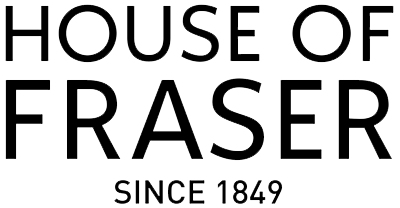To survive, retailers need to think like brands
These days, brands are probably more in tune with what their customers want than retailers, which is ironic, given that it is the retailers that have the data on customers, not the brands. But data is a strength they are not exercising fast enough or deeply enough. Unless retailers catch up, they risk being displaced by brands now that retailers’ biggest advantage, the store, is fast being lost.
Consider all the things that customers care about that are business as usual for brands that wear their hearts on their sleeve; product design and development, customer service, sustainability, diversity, staff welfare, charitable concern, ingredients and materials, community involvement, fulfilment and returns management, accessibility.
Where consumers were once happy with the ‘what’ of the product, now they demand to know how, when, where and who. How are your products made, where do they come from, what do you stand for, who runs the business?
These are all questions that brands are happy to answer because the way they operate is synonymous with the products they produce. There are degrees of commitment of course once you make a distinction between brands that manage their entire lifecycle from design and manufacture all the way through to final disposal, as opposed to brands that stick their name on something manufactured by a third party. But compared to most retailers, they are very hands on, and many of the elements in the list above are everyday practice for them.
Corporate and social responsibility is a chimera
Of course, many retailers are also strong in many of these areas, but not to the same extent as brands and many retailer’s CSR policies echo to the sound of box ticking rather than authenticity. Retail is hampered by the fact that it is defined as a series of largely mechanical and logistical processes that join to enable a product to be moved in front of a customer. And this is why, in store, it has become such a soulless experience for the consumer; the products are present, but the values that surround them are not.
This didn’t used to matter; when retail was only stores, consumers had nowhere else to go. And brands had little or no direct access to the customer. Now, and for the last 10 years, they have been able to go direct and it is my contention that retail is getting close to losing its advantage over brands, even to the extent that brands may soon become the dominant force in the minds of the consumer.
Most retailers have no brands values anyone can articulate
You can decide whether I am onto something or not by playing this game at home – you can tell me what the Apple brand stands for but you will probably struggle to tell me what Debenhams stands for. Or Topshop, now liberated from its stores; what brand values does it have that you can list for me? And you can play this game with any number of brands, but I think you will struggle with retailers. Unless you count Amazon as a retailer, a business bursting with brand values even though ironically its own brands are mostly trash, even at low prices.
If brands do become the dominant force, it is probably hard to believe that might ever be the case on current form in the UK. Just consider what has happened to Cath Kidston, Aquascutum, Jaeger, Coast, Oasis, Karen Millen in the last couple of years – answer? Living on as zombie brands inside Frasers Group or private equity, starved of investment and existing on barely any shred of credibility. The founder of course is kept on in a ‘creative’ role. Credible? Not.
That’s harsh I know, because the truth is always more nuanced, depending on which brand you are thinking of, but when I say brand, I mean Burberry and then after that, in the UK, I struggle to find the next one without drifting off to France, Spain or Italy where integrated supply chains, brand heritage, protected craftsmanship and sustainability all mean something.
D2C is turning into a mass movement
The point is, while we can talk about the parlous state of UK clothing brands another time, brands generally are very well placed to meet the demands of the new consumer, one for whom brands exist on many different levels. Brands that have lost their physical route to market with the demise of the department store have not wasted any time in building their own routes through digital, be it owned or third party channels. And when it comes to using social media and influencers to showcase their products, they are leaving retailers in the dust. Funny how most self-respecting influencers don’t really want to be associated with a retailer, but a brand, now that’s something they can believe in.
Brands also have distinct advantages over retailers because they can promote their wealth of values. Most chain retailers however deliver an astonishingly dull shopping experience because all they have is physical space and most have done little to make best use of it, talking as they still do about sales per square foot.
Consumers really only put up with it because they have not been offered an alternative. We can’t keep talking about the importance of retail theatre if no retailer actually delivers it. I almost never see it, but maybe I am shopping in the wrong places. Perhaps you can point out a few examples.
There is some blurring between the two of course. Lego is a retailer and owns all of its stores, but you wouldn’t doubt that it is a brand. And I imagine if retail stopped working for Lego, it would quit. What retailer ever thrives by thinking like a brand. Again, Burberry is the best example I can think of. You will have others no doubt.
New brands are coming
The largely unsung heroes of retail are of course the independents, and what those guys have done during lockdown is miraculous. Their ascendancy has been going on for some years but the pandemic really shone a spotlight on what they are capable of. They are infused with brand values from top to bottom because there is generally an owner or a couple behind the business for whom retail is their life. They probably got into business because they could not find what they themselves were looking for on the market. Sound familiar?
As to whether brands on line plus a thriving independent sector can define retail of the future remains to be seen, but the consumer certainly seems keen.


















